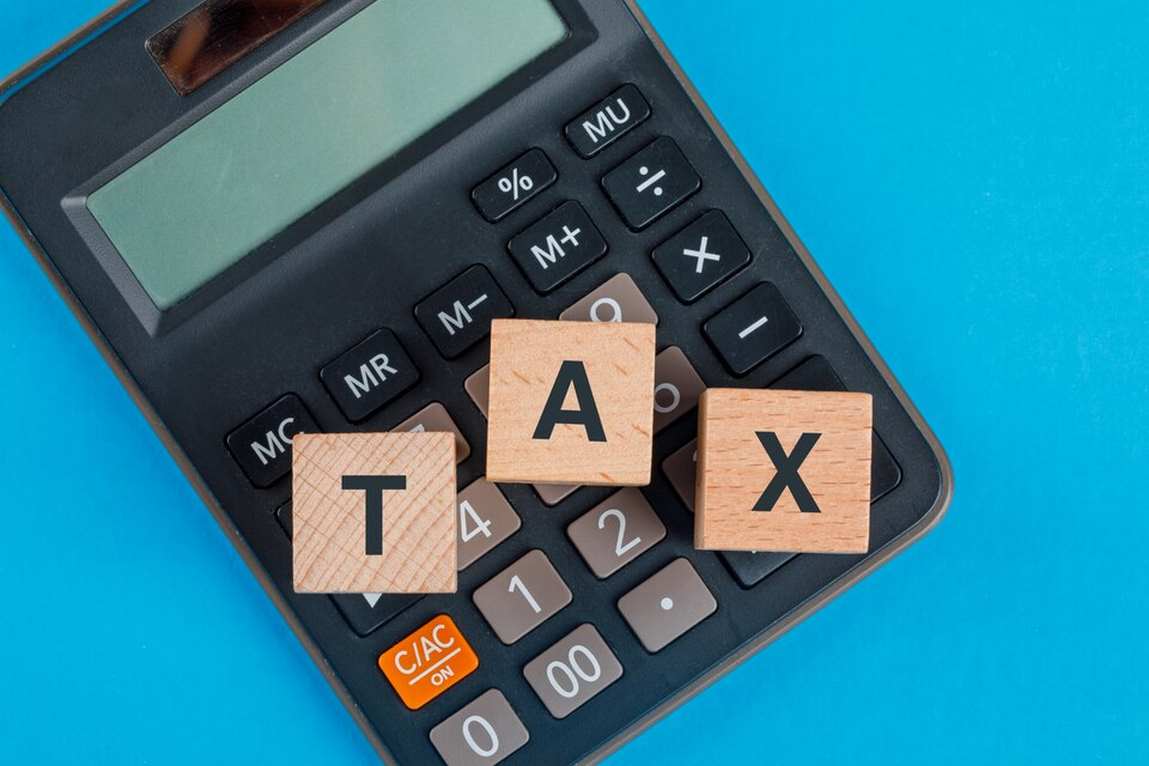What’s the Buzz About Home Equity Loans?
Home equity loans are in the spotlight, and for good reason. They provide a tempting opportunity: access to cash by leveraging the equity in your home. Whether it’s for renovations, debt consolidation, or a dream vacation, tapping into your home’s value can be appealing. But there’s a crucial question: Can you deduct the interest on these loans when tax season rolls around?
Why This Question Matters More Than Ever
With evolving tax laws, understanding the deductibility of home equity loans has become increasingly important. Recent changes in tax regulations have altered the landscape, making it essential for homeowners and prospective borrowers to grasp the current rules to avoid surprises on April 15th.

The Lowdown on Home Equity Loans
Home Equity Loans 101: What Are They and How Do They Work?
A home equity loan is like a second mortgage, allowing you to borrow against the equity in your home. Equity is the difference between your home’s market value and your outstanding mortgage balance. You receive a lump sum, which you repay over a fixed term with a fixed interest rate. Think of it as borrowing from your future self with a predictable repayment plan.
Home Equity Loans vs. HELOCs: The Showdown
Let’s compare: Home equity loans offer a lump sum with fixed payments, while Home Equity Lines of Credit (HELOCs) provide a revolving credit line similar to a credit card. The choice between them comes down to fixed versus flexible. If you prefer stability, a home equity loan is ideal; if you value flexibility, a HELOC might be better.
The Tax Rules Explained
Tax Deductibility Demystified: What Does It Really Mean?
Tax deductibility allows you to subtract certain expenses from your taxable income, potentially lowering your tax bill. For home equity loans, this means that if certain conditions are met, you might be able to deduct the interest paid. However, navigating the rules can be complex.
The Impact of the Tax Cuts and Jobs Act on Home Equity Loans
The Tax Cuts and Jobs Act (TCJA) of 2017 brought significant changes. Previously, interest on home equity loans was broadly deductible. Now, the deductibility hinges on whether the loan is used for substantial home improvements. Understanding these changes is crucial for effective tax planning.
Interest Deductions: What You Need to Know
Can You Deduct Interest on a Home Equity Loan?
In short: Maybe. The deductibility of interest on a home equity loan largely depends on how you use the funds. If the loan is used for substantial home improvements, the interest may be deductible. However, for other uses like debt consolidation or vacations, the interest is generally not deductible.
Navigating the Limits: How Much Can You Really Deduct?
The IRS limits the total amount of mortgage debt you can deduct interest on to $750,000 ($375,000 if married filing separately) for 2024. This cap includes both primary and secondary loans, aiming to manage deductible mortgage debt effectively.
Qualified Residence Loans: The Fine Print
What Makes a Home Equity Loan “Qualified”?
For a home equity loan to be eligible for interest deduction, it must be secured by your primary or secondary residence and used for substantial home improvements. Cosmetic updates won’t qualify. Think major upgrades like a new roof or home addition, rather than minor enhancements.
Understanding the Rules for Deductibility
Familiarize yourself with IRS rules to ensure your home equity loan qualifies for deduction. The loan must be used for significant home improvements, not merely cosmetic changes.
Special Scenarios: When Things Get Tricky
Using Loans for Home Improvements vs. Other Expenses: What’s the Difference?
The distinction between using a home equity loan for home improvements and other expenses affects your tax deduction. Improvements that add value or extend the life of your home are deductible, while personal expenses like vacations are not.
Home Equity Loans and Investment Properties: Tax Implications
Interest on loans for investment properties can be deductible, but the rules differ from those for primary residences. Careful consideration is required to ensure compliance and optimize deductions.
The IRS’s Perspective: What They Want You to Know
IRS Guidelines on Home Equity Loan Deductions
The IRS specifies what qualifies for deductions. The loan must be secured by your primary or secondary residence, and the funds must be used for qualifying improvements. Understanding these guidelines helps navigate your tax return smoothly.
Essential Documentation and Record-Keeping Tips
Proper documentation is crucial. Save receipts, invoices, and other records related to home improvements made with the loan. Good record-keeping is essential for substantiating your deductions if questioned by the IRS.
Alternatives to Home Equity Loan Deductions
Other Tax Benefits of Home Ownership You Might Be Missing
Homeownership offers various tax benefits beyond home equity loan deductions. Mortgage interest, property taxes, and points paid at closing may provide additional tax relief. Explore these benefits to enhance your financial strategy.
When Home Equity Loans Aren’t the Best Tax Strategy
Sometimes, a home equity loan isn’t the most tax-efficient choice. Alternatives like personal loans, retirement account withdrawals, or cash reserves might offer better financial outcomes depending on your situation.
Maximizing Your Tax Benefits
Strategies to Optimize Your Home Equity Loan Deductions
To maximize deductions, ensure your home equity loan is used for substantial home improvements, stay within IRS limits, and maintain meticulous records. Consulting a tax advisor can help align your financial strategies with current tax laws.
Common Mistakes to Avoid When Claiming Deductions
Avoid mistakes such as confusing home improvements with personal expenses or failing to keep proper documentation. Being thorough and informed can help you avoid costly errors and maximize your deductions.
Final Thoughts: Making the Most of Your Home Equity Loan
Weighing the Pros and Cons: Is It Worth It?
Consider the advantages and disadvantages of a home equity loan. Weigh the potential tax benefits against the risks and costs of borrowing against your home. A comprehensive evaluation will help you make a decision that aligns with your financial goals.
Staying Updated: How to Keep Track of Tax Law Changes
Tax laws are ever-changing. Stay updated on tax regulation changes that could affect your home equity loan deductions. Regularly review tax updates or consult with a financial advisor to ensure your strategies remain effective and compliant.
Frequently Asked Questions (FAQs)
What are the new rules for home equity line of credit in Canada?
In Canada, the rules for home equity lines of credit (HELOCs) have evolved to enhance consumer protection and ensure responsible borrowing. Recent changes include stricter creditworthiness assessments and more transparent disclosure of terms. Lenders now have to ensure borrowers understand the risks and costs associated with HELOCs. Additionally, there are limits on the amount of equity that can be accessed based on the property’s value and the borrower’s financial profile.
What is the difference between a mortgage and a home equity loan?
A mortgage is a loan used to purchase a home, where the home itself serves as collateral. It typically has a long-term repayment plan and a fixed or adjustable interest rate. A home equity loan, on the other hand, is a type of second mortgage that allows homeowners to borrow against the equity in their property. Unlike a mortgage, a home equity loan provides a lump sum amount with a fixed interest rate and a fixed repayment term.
Is a home equity loan considered a refinance?
No, a home equity loan is not considered a refinance. Refinancing involves replacing an existing mortgage with a new one, typically to secure better terms or lower interest rates. A home equity loan, however, is a separate loan taken out in addition to your primary mortgage, allowing you to tap into your home’s equity.
Do both borrowers have to be on home equity loan?
Both borrowers do not necessarily have to be on a home equity loan, but it’s often beneficial for both to be included. If both parties are co-borrowers on the primary mortgage, including both on the home equity loan can ensure that both are responsible for repayment and that the loan terms reflect the financial situation of both individuals.
Is a HELOC considered a mortgage?
A Home Equity Line of Credit (HELOC) is a type of revolving credit secured by your home’s equity, and it functions similarly to a credit card. While it is secured by the home and often referred to as a second mortgage, it is not a traditional mortgage. It provides a flexible borrowing option with a variable interest rate and the ability to draw funds as needed.
Is it OK to have a second mortgage?
Yes, it is generally OK to have a second mortgage, such as a home equity loan or HELOC, as long as you can manage the additional debt responsibly. A second mortgage can help with significant expenses or financial needs, but it adds to your overall debt load and may increase financial risk if not managed carefully.
Can I have two mortgages?
Yes, you can have two mortgages on the same property. The first mortgage is typically used to purchase the home, while the second mortgage (such as a home equity loan or HELOC) allows you to borrow against the home’s equity. Both mortgages are secured by the property, and you must be able to manage the combined debt responsibly.
What type of credit is a home equity loan?
A home equity loan is a type of secured credit. It is secured by the equity in your home, which serves as collateral for the loan. Unlike unsecured credit, such as credit cards or personal loans, a home equity loan requires you to pledge your property as security for the borrowed amount.
Does a home equity loan affect your mortgage?
A home equity loan does not directly affect your primary mortgage, but it adds to your overall debt load. Since it is a second mortgage, it is secondary to your primary mortgage, and both must be managed effectively. The presence of a home equity loan can affect your ability to refinance or qualify for additional credit.
How are home equity loans calculated?
Home equity loans are calculated based on the amount of equity you have in your home. To determine the loan amount, lenders typically use the formula: Home Equity = Current Home Value – Outstanding Mortgage Balance. Lenders may offer a percentage of this equity, usually up to 80% or 90%, depending on their policies and your creditworthiness.
Are home equity loans lump sum?
Yes, home equity loans are typically provided as a lump sum. You receive the entire loan amount upfront, and you repay it over a fixed term with regular payments. This differs from a HELOC, which offers a revolving credit line where you can draw funds as needed.
What is a home equity loan interest rate?
The interest rate on a home equity loan is generally fixed, meaning it remains the same throughout the term of the loan. Rates can vary based on the lender, your creditworthiness, and the amount of equity you are borrowing against. Fixed rates offer predictability in your payments, making budgeting easier.
Can you pay off a home equity loan early?
Yes, you can usually pay off a home equity loan early. Many lenders allow early repayment without penalties, but it is important to check your loan agreement for any prepayment penalties or conditions. Paying off the loan early can save you on interest costs and reduce your overall debt burden.









